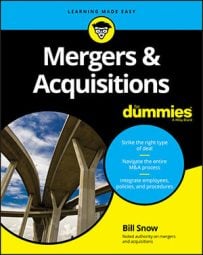Buyers often prefer to negotiate M&A deals without the nuisance of competition. Strike that; Buyers always prefer to negotiate deals without the nuisance of competition. Who can blame them? Removing competition puts Buyer in a stronger position. That’s why Buyers often want to lock Sellers down with an exclusivity clause.
An exclusivity clause prevents you as a Seller from engaging in M&A talks with other Buyers, so Sellers should wait until the indication of interest (IOI) stage before agreeing to exclusivity. Competition is a boon to any Seller; as a Seller, the odds of closing a deal are lower when you have only one potential Buyer. Play the field until you have multiple offers.
Granting exclusivity is a form of capital; don’t give it up without getting something in return.
Buyers sometimes ask to make a pre-emptive bid (an offer made before the due date for offers from other Buyers), which usually includes exclusivity. Seller should pursue a pre-emptive bid only if Buyer is willing to forgo exclusivity. This way, you have protection if the pre-emptive Buyer backs out (the process has been continuing, so you don’t lose any time).
Otherwise, you can lose momentum and essentially end up back at square one. Remind such Buyers that if they’re genuinely interested in making a pre-emptive bid, that bid ought to reflect your potential lost opportunity cost. In other words, that pre-emptive bid ought to have some sort of premium in the price.
Asking for a breakup fee (a fee Buyer pays you if he ultimately walks away without closing a deal), may not be a bad idea. Note that most Buyers are reluctant to include a breakup fee (in both pre-emptive bids and regular bids) in a deal, though, so the odds of getting one are rather low.
If you require a quick close, perhaps due to an eroding business situation, a pre-emptive bid may make sense. You may not get the best deal possible, but given the time constraints, it may be the last and best option. Holding out for a slightly better deal may backfire if you run out of time before that better deal materializes.

